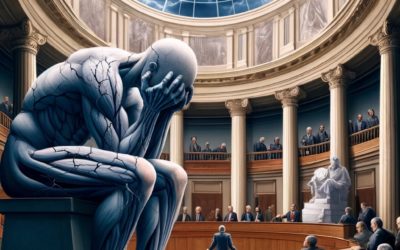Introduction
Carl Jung, a pioneer of depth psychology, posited that the contents of our subconscious are never truly lost. Instead, they linger beneath the surface of our conscious minds, influencing our lives in profound ways. This blog explores Jung’s belief that these subconscious elements manifest as destiny or chance and play a critical role in shaping our behaviors and experiences.
The Subconscious: A Repository of Hidden Memories
Jung believed that our subconscious is a vast repository for all our forgotten experiences, emotions, and thoughts. According to him, these submerged memories don’t just disappear; they resurface, influencing our lives often without our conscious awareness. This phenomenon can explain why certain patterns repeat in our lives or why specific events seem to hold significant, yet inexplicable, emotional weight.
- Memory and Forgetting: Even when we struggle to recall past events, the subconscious mind holds onto these memories. Difficulty in remembering does not equate to erasure; rather, these memories can reemerge in unexpected ways.
- Manifestation of Subconscious Content: Words, images, and urges from our past can appear spontaneously, contributing to the formation of what Jung called the “secret language” of our inner selves. This language often guides our actions and choices, subtly steering our fate.
The Role of Destiny and Chance
Jung’s theory suggests that destiny or chance encounters are not random but are expressions of previously unconscious content that has found its way to the surface. These moments of apparent serendipity or misfortune are, in fact, the subconscious mind communicating in a language that our conscious self can see and experience.
- Understanding Destiny: By recognizing that these elements of destiny are rooted in our subconscious, we can begin to understand our deeper selves and the hidden drives that influence our life’s direction.
- Chance as a Guide: Chance encounters or unexpected opportunities might actually be the subconscious creating scenarios that force us to address buried issues or forgotten dreams.
Connecting Symptoms to Causes
One of the most transformative aspects of Jung’s theory is the connection between the reasons behind our fears and the symptoms of our disorders. By delving into the subconscious and uncovering the source of these fears, we can confront and understand the symptoms that manifest in our conscious lives.
- Symptoms as Signals: Symptoms of psychological disorders or emotional disturbances often signal unresolved issues lurking in our subconscious.
- Resolution through Awareness: By bringing these subconscious thoughts to the forefront of our awareness, we can address the root causes of our issues, opening up new possibilities for healing and growth.
Embracing the Power of the Subconscious
Jung’s insights into the subconscious encourage us to look beyond the surface of our minds to discover the hidden forces shaping our lives. By understanding and engaging with our subconscious, we not only uncover the origins of many of our fears and disorders but also open ourselves to profound transformations. The journey into the subconscious is not just about unearthing hidden memories; it’s about recognizing that these buried pieces are actively constructing the narrative of our lives and that by understanding them, we can potentially rewrite our destinies.
This deeper comprehension of Jung’s theories allows us to appreciate the intricate tapestry of our psyche and the powerful influence of our least understood thoughts and memories. By embracing the mysterious language of our subconscious, we can unlock new pathways to personal insight and resolution.



0 Comments